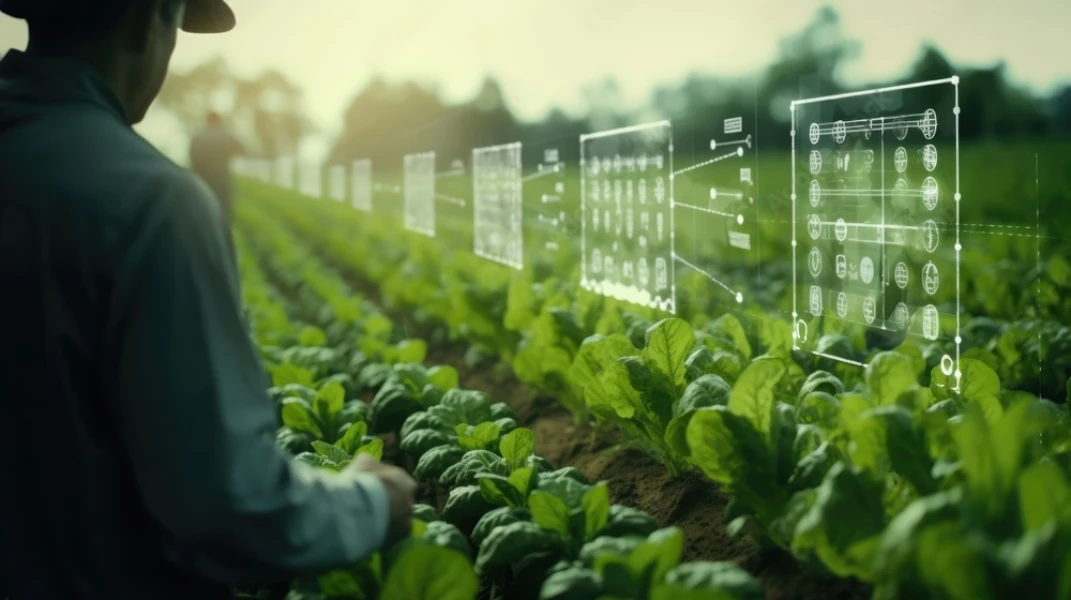Cultivating Insights: The Power of Data Analytics in Agriculture
Category: Smart Agriculture Technologies
In the ever-evolving landscape of agriculture, a silent revolution is taking place—one driven by data. The integration of Data Analytics is reshaping traditional farming practices, empowering farmers with actionable insights, and optimizing every aspect of crop management. This article explores the transformative role of Data Analytics in agriculture, unraveling how data-driven decision-making is enhancing precision farming, resource optimization, and overall agricultural productivity.
1. Precision Farming Unleashed: Data-Driven Crop Management
- The era of Precision Farming has dawned, and at its core is the application of Data Analytics in crop management. This section explores how farmers leverage data analytics tools to process information from various sources, including sensors, satellites, and drones. By analyzing this wealth of data, farmers can make precise decisions on irrigation, fertilization, and pest control, ultimately maximizing yields and minimizing resource usage..
2. Predictive Modeling for Crop Yields: Anticipating Harvests with Data Insights
- Data Analytics is revolutionizing the way farmers predict and plan for crop yields. This heading delves into how predictive modeling, powered by historical data and advanced analytics algorithms, enables farmers to anticipate harvests accurately. By understanding the factors influencing crop growth, farmers can proactively adjust their strategies, optimize planting schedules, and mitigate potential risks for a more predictable and successful harvest.
3. Weather Data Integration: Navigating Agriculture with Climate Insights
- Data Analytics is crucial in processing and interpreting weather data, providing farmers with insights into climate patterns and changes. This section explores how farmers integrate weather data analytics into their decision-making processes. By understanding weather trends, farmers can make informed choices on planting times, irrigation schedules, and crop varieties, ensuring resilience in the face of changing climate conditions.
4. IoT and Sensor Networks: Real-Time Data for Informed Agriculture
- The proliferation of IoT devices and sensor networks in agriculture generates vast amounts of real-time data. This heading delves into how Data Analytics processes this continuous stream of information. By analyzing data from soil moisture sensors, GPS-guided tractors, and other IoT devices, farmers gain immediate insights into field conditions, enabling them to make on-the-spot decisions for optimal resource usage and operational efficiency.
5. Supply Chain Optimization: Streamlining Agriculture from Field to Fork
- Data Analytics extends its influence beyond the fields and into the entire agricultural supply chain. This section explores how data analytics tools help optimize logistics, distribution, and market strategies. By analyzing data on crop yields, demand trends, and transportation efficiencies, farmers can streamline supply chain processes, reduce waste, and ensure that produce reaches consumers efficiently and sustainably.
CASE STUDIES
Case Study 1: The Climate Corporation’s Climate FieldView
Overview:
- The Climate Corporation, a subsidiary of Bayer, has pioneered the use of Data Analytics in agriculture with its Climate FieldView platform.
Implementation:
- Climate FieldView integrates data from various sources, including weather data, soil samples, and satellite imagery. The platform utilizes advanced Data Analytics algorithms to generate actionable insights for farmers. By analyzing historical weather patterns, current field conditions, and predictive modeling, farmers can make informed decisions on planting, fertilization, and harvesting. Climate FieldView provides a comprehensive view of the farm, allowing for precision agriculture practices.
Results:
- Farmers adopting Climate FieldView have reported increased crop yields and resource efficiency. The platform’s data analytics capabilities enable farmers to optimize inputs, reduce waste, and make timely decisions based on accurate information. This case study illustrates how the integration of Data Analytics, as exemplified by Climate FieldView, enhances overall farm management and contributes to sustainable and profitable agriculture..
Case Study 2: IBM AgroPad in Smallholder Farms
Overview:
- IBM’s AgroPad is a data analytics solution designed to assist smallholder farmers in optimizing crop management and resource usage.
Implementation:
- The AgroPad is a low-cost, portable device that smallholder farmers can use to analyze soil and water samples. The device captures data on nutrient levels, pH, and other essential parameters. The collected data is then sent to the cloud, where IBM’s Data Analytics tools process the information. The farmers receive actionable insights on soil health, enabling them to make informed decisions on fertilization and irrigation.
Results:
- The implementation of IBM AgroPad has shown significant improvements in crop yields for smallholder farmers. By providing data-driven insights tailored to local conditions, farmers can optimize resource usage, reduce costs, and improve overall agricultural productivity. This case study highlights how Data Analytics, even in resource-constrained environments, can have a positive impact on small-scale agriculture, promoting sustainability and economic growth.

